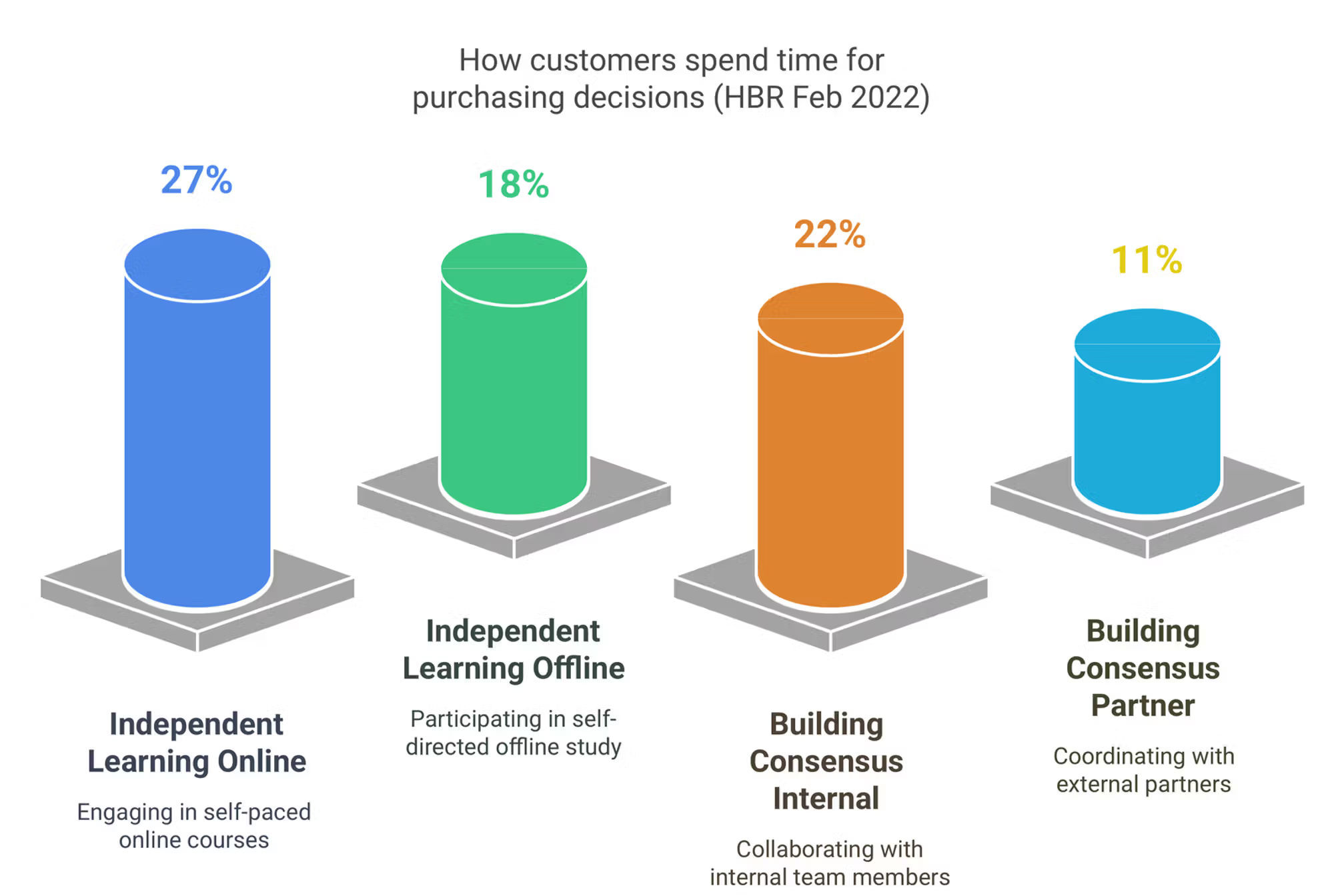A recent Harvard Business Review (HBR) article, "Traditional B2B Sales and Marketing Are Becoming Obsolete," has ignited a debate among sales professionals in the enterprise B2B sector. The article highlights a significant shift in buyer preferences, with 43% of surveyed B2B buyers expressing a desire for zero interaction with sales representatives during the purchasing process. This trend has prompted a reassessment of traditional sales approaches and strategies.
Several key factors characterize the changing B2B sales environment:
Buyer Autonomy: Modern B2B buyers are increasingly self-reliant, often completing 80-90% of their purchasing journey before engaging with a sales representative. Shifting Power Dynamics: There is a noticeable transfer of power to professional buyers and procurement departments, particularly in large enterprises. Limited Engagement Opportunities: Sales representatives often find themselves with fewer opportunities to interact directly with potential clients.
Despite the apparent trend towards less sales interaction, many sales professionals argue that the role of B2B sales is evolving rather than becoming obsolete:
Value-Added Interactions: Buyers still seek knowledgeable guides who can help them navigate complex products and services. The key is to provide valuable insights rather than relying on traditional "hard sell" tactics. Personalization: There is a growing emphasis on treating clients as individuals rather than faceless B2B entities. Personalized approaches that address specific client needs are becoming increasingly important. Efficiency and Professionalism: In a landscape where interactions may be limited, sales professionals must maximize the impact of each engagement by being extremely efficient and professional.
Several arguments support the ongoing relevance of B2B sales:
Complex Purchases: For high-value, complex products or services, buyers still require human interaction to fully understand and evaluate their options. Deciphering Marketing Content: Sales representatives play a crucial role in helping customers interpret and apply marketing information to their specific situations. Project Support: Beyond the initial sale, representatives often assist customers in implementing and running their projects successfully.
While the HBR article suggests a trend towards less sales interaction in B2B transactions, the reality appears more nuanced. The role of B2B sales is undoubtedly changing, but it is adapting rather than disappearing. Success in this new landscape requires sales professionals to focus on adding value, personalizing their approach, and efficiently guiding customers through complex purchasing decisions. As one commenter aptly put it, the goal should be to "help people buy" rather than simply trying to sell.
https://hbr.org/2022/02/traditional-b2b-sales-and-marketing-are-becoming-obsolete
